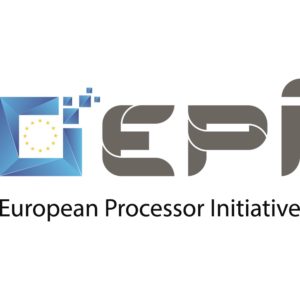 Today the European Commission announced more details on the European Processor Initiative to co-design, develop and bring on the market a European low-power microprocessor.
Today the European Commission announced more details on the European Processor Initiative to co-design, develop and bring on the market a European low-power microprocessor.
This technology, with drastically better performance and power, is one of the core elements needed for the development of the European Exascale machine. We expect to achieve unprecedented levels of performance at very low power, and EPI’s HPC and automotive industrial partners are already considering the EPI platform for their product roadmaps,” said Philippe Notton, the EPI General Manager.
The European Processor Initiative (EPI) comprises 23 partners from 10 European countries, with the aim to bring to the market a low power microprocessor. The main objectives of the EPI are to:
- Develop low-power processor technology to be included in a European pre-exascale system (capable of around 1016 calculations per second) and in European exascale systems (a billion billion or 1018 calculations per second),
- Guarantee that a significant part of that technology is European,
- Ensure that the application areas of the technology are not limited only to HPC, but cover other areas such as the automotive sector or the datacenters, thus ensuring the overall economic viability of the initiative. One specific objective for the automotive sector is for instance to develop customized processors able to meet the performance needed for autonomous cars.
EPI will provide to the European industry and research a competitive HPC platform and data processing solutions at world class level in the best interest of data security and ownership. It gathers experts from the High Performance Computing research community, the major supercomputing centers, and the computing and silicon industry as well as the potential scientific and industrial users. Through a co-design approach, it will design and develop the first European HPC Systems on Chip and accelerators. Both elements will be implemented and validated in a prototype system that will become the basis for a full Exascale machine based on European technology.
The European Processor Initiative is an important step of a strategic plan to develop an independent and innovative European supercomputing and data ecosystem and will ensure that the key competence of high-end chip design remains in Europe, a critical point for many application areas. Thanks to such new European technologies, European scientists and industry will be able to access exceptional levels of energy-efficient computing performance. This will benefit Europe’s scientific leadership, industrial competitiveness, engineering skills and know-how and the society as whole.
Next steps
The EPI consortium proposes to create a long-term economic model by delivering a family of processors for the 3 markets:
- High Performance Computing
- Datacenters and servers
- Autonomous vehicles
EPI puts in place the roadmap for European HPC chips and accelerators facilitating the development of pre-exascale and exascale machines as well as prototypes for automotive proofs of concept.
The financial contribution of the European Union to the initiative under the Horizon 2020 programme is expected to be around EUR 120 million. Specific grant agreements to support the EPI will be published later this year. The objective is to allocate funding to implement the roadmap presented by the consortium.
Background
The EPI initiative is part of a broader strategy to develop an independent European HPC industry based on domestic and innovative technologies as presented in the EuroHPC Joint Undertaking proposed by the European Commission in January.
The EuroHPC Joint Undertaking is a legal and funding entity which will enable pooling of the Union’s and national resources on High-Performance Computing to acquire, build and deploy in Europe the most powerful supercomputers of the world. The aim of the EuroHPC Joint Undertaking (JU) is to develop exascale supercomputers based on competitive EU technology.
The activities of the Joint Undertaking will be grouped around two main pillars:
- Procurement and operation of HPC machines: to acquire two world-class supercomputers and at least two mid-range supercomputers, and to provide and manage access to these machines to a wide range of public and private users around 2020.
- A Research and Innovation program on HPC: to support European HPC technology, co-design European exascale machines, develop the first generation of a European low-power microprocessor technology and foster applications, skills development and a wide use of HPC.
The JU builds upon the EuroHPC declaration, launched in Rome in March 2017 and already signed by several countries.




